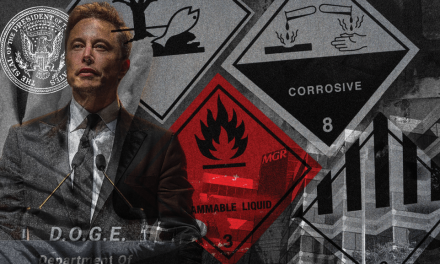By Ashlee Banks
Special to the AFRO
Attorney Gilda Daniels, a professor at the University of Baltimore School of Law, warned that the expansion of the death penalty under President Donald Trump’s new executive order will have devastating consequences for Black and Brown communities.

“What is clear is that the death penalty is being executed in a discriminatory manner that has certainly been historic, as well as a contemporaneous fact that certainly it depends on who committed the crime,” Daniels told the AFRO.
“What was the race of the person who was convicted of the crime, and what was the race of the person of the victim of the crime as well and that leads to who actually gets the death penalty,” she added. “This is what we as a country need to address.”
U.S. Rep. Jasmine Crockett (D-Texas-30) strongly denounced Trump’s executive order, arguing that it reflects a dangerous shift in presidential priorities.
“This is really a stark contrast to what we’ve come to expect out of our United States presidents,” Crockett told the AFRO. “Everything that Kamala Harris has done, everything that Joe Biden has done, they have always tried to be inclusive. really tell you who the priority is.”
Trump’s executive order reinstates and expands the federal death penalty, reversing the moratorium implemented during the Biden administration. The order calls for federal prosecutors to aggressively seek capital punishment for certain offenses, including crimes involving the murder of law enforcement officers and capital offenses committed by undocumented immigrants. It also directs the attorney general to take measures ensuring states have access to lethal injection drugs and to push for the reversal of Supreme Court rulings that have limited the use of the death penalty.
Critics argue that the policy will further entrench systemic racial disparities in the justice system. Studies have consistently shown that Black defendants are disproportionately sentenced to death, especially when the victims are White. Meanwhile, White defendants convicted of similar crimes are far less likely to face the ultimate punishment.
Additionally, Trump’s order mandates a review of the conditions of confinement for the 37 individuals whose federal death sentences were commuted by President Biden, with the goal of ensuring they are imprisoned under harsher conditions. The attorney general is also tasked with determining whether those individuals can face state-level capital charges, signaling a possible attempt to re-sentence them to death despite their commutations.
Trump justified his decision by claiming that capital punishment serves as a deterrent to violent crime and is essential for justice.
The order states, “Capital punishment is an essential tool for deterring and punishing those who would commit the most heinous crimes and acts of lethal violence against American citizens. Our Founders knew well that only capital punishment can bring justice and restore order in response to such evil.”
However, legal experts and civil rights advocates see this move as a dangerous escalation of an already flawed system that disproportionately punishes people of color. They point out that reinstating and expanding the federal death penalty will only exacerbate existing inequalities in sentencing and execution.
With this sweeping executive action, Trump is not only reversing previous efforts to reform the criminal justice system but also reaffirming policies that have long been criticized for their racial bias. The order, with its targeted language and aggressive stance, raises serious concerns about how the expanded use of the death penalty will be applied and who will bear the brunt of its consequences.
The post Expanded death penalty order raises concerns over racial disparities appeared first on AFRO American Newspapers.










